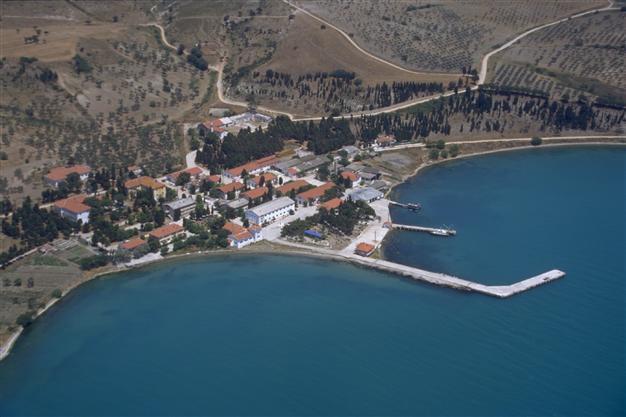European anti-torture committee visits jailed PKK leader Öcalan
STRASBOURG

A three-member delegation from the Council of Europe Committee for the Prevention of Torture (CPT) has paid a visit to the jailed leader of the outlawed Kurdistan Workers’ Party (PKK), Abdullah Öcalan, and held consultations with senior Turkish government officials. The visit was conducted last week to examine the treatment and conditions at the İmralı detention facility on an island in the Marmara Sea.
“The purpose of the visit was to examine the treatment and conditions of detention of the [four] prisoners currently held in the establishment and to review the measures taken by the Turkish authorities in the light of the recommendations made by the CPT after its previous visit to the prison [in January 2013],” the committee said in an official statement released on its website.
The CPT delegation, headed by the council’s president, Mykola Gnatovskyy, held meetings with Justice Minister Bekir Bozdağ and Director General of Prisons and Detention Centers Enis Yavuz Yıldırım as well as other senior officials from the Justice Ministry and Foreign Affairs Ministry during its two-day visit on April 28 and 29.
The CPT, which has the right to visit, at any time, any place where persons are deprived of their liberty by a public authority, had released a report after the January 2013 visit and concluded there was no evidence of ill-treatment of prisoners at the İmralı F-Type High-Security Closed Prison.
Nonetheless, the delegation urged that Öcalan be allowed open air time and contact with other inmates during his outdoor exercise time. In this regard, the CPT underlined that “particular attention was paid to the communal activities offered to prisoners.”
The council had also called for allowing Öcalan to meet with his family and lawyers, which has not been permitted for the past year as peace talks between the Turkish state and the outlawed PKK recently collapsed, leading to a rekindling of violence, especially in the country’s southeast.
According to German broadcaster Deutsche Welle, European institutions affiliated with the PKK had been lobbying to prompt the CPT into sending a delegation to the country. It added that supporters of the outlawed group organized sit-ins and rallies in front of EU bodies in Strasbourg throughout March in order to prompt action.
The CPT is expected to release its findings in a report in the coming months.
 A three-member delegation from the Council of Europe Committee for the Prevention of Torture (CPT) has paid a visit to the jailed leader of the outlawed Kurdistan Workers’ Party (PKK), Abdullah Öcalan, and held consultations with senior Turkish government officials. The visit was conducted last week to examine the treatment and conditions at the İmralı detention facility on an island in the Marmara Sea.
A three-member delegation from the Council of Europe Committee for the Prevention of Torture (CPT) has paid a visit to the jailed leader of the outlawed Kurdistan Workers’ Party (PKK), Abdullah Öcalan, and held consultations with senior Turkish government officials. The visit was conducted last week to examine the treatment and conditions at the İmralı detention facility on an island in the Marmara Sea.